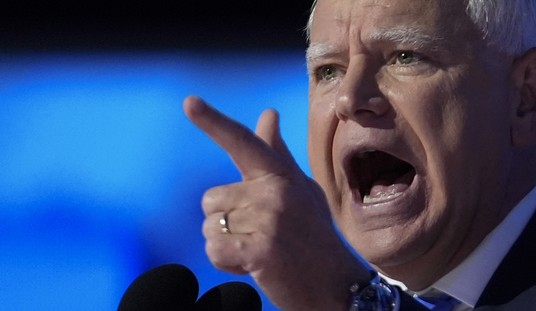By Abu Kais
With Hizbullah reportedly planning “surprise” protests this week to topple the Siniora government, many, including Shias, are not surprised by how far the foreign-funded militia is prepared to take the country, and the Shia community, in what seems to be a political jihad against the state.
Masking Hizbullah’s “surprise” measures is a concern over the Lebanese constitution, which God’s self-appointed warriors claim to defend.
Following the Syrian-motivated resignation of two Hizbullah ministers and 4 of their allies, the argument du jour of the so called “opposition” is that the cabinet, a.k.a. council of ministers, has become unconstitutional because it violates a sentence in the preamble of the constitution. The sentence is:
There is no constitutional legitimacy for any authority which contradicts the ‘pact of communal coexistence
The argument is, of course, rubbish. The cabinet has the confidence of parliament (which includes Hizbullah members), and only parliament, not a militia, decides on the constitutionality of the country’s legitimate authority.
What Hizbullah is doing sets a dangerous precedent in the country: a pseudo-political sectarian entity allied with a foreign wannabe-power is manipulating the system and refusing to recognize the authority of the state if the latter does not succumb to extraterritorial demands.
Furthermore, there is nothing in the constitution that says a cabinet cannot continue to govern after the resignation of less than a third of its cabinet members. In fact, and upon becoming a deputy or minister, cabinet members are considered representatives of the entire nation and “no restriction or stipulation may be imposed upon [their] mandate by [their] electors,” let alone the party to which they belong.
In any case, the constitution was clear on when a cabinet is considered without power, i.e. “resigned”:
(1) The Government is considered resigned in the following circumstances:
a. if the Prime Minister resigns;
b. if it loses more than a third of the members specified in the Decree forming it;
c. if the Prime Minister dies;
d. at the beginning of the term of the President of the Republic;
e. at the beginning of the term of the Chamber of Deputies;
f. when it loses the confidence of the Chamber of Deputies based on the Chamber’s initiative or based on the Council’s initiative to gain the Chamber’s confidence.
(2) Ministers are to be dismissed by a Decree signed by the President and the Prime Minister in accordance with Article 65 of the constitution.
(3) When the Council resigns or is considered resigned, the Chamber of Deputies is automatically considered in extraordinary session until a new Council has been formed and has gained the Chamber’s confidence.
Hizbullah’s insistence that the cabinet has no authority is by itself an act of rebellion against the state. They have the right to argue for unconstitutionality– but as long as this cabinet is around, they are forced to recognize its authority because it has not resigned. Promised acts of “civil disobedience” amount to treason, especially when the country is on the verge of economic collapse because of a devastating war started by none other than Hizbullah.
Ironically, Hizbullah continues to support the Syrian-imposed president, Emile Lahoud, whose term was extended under Syrian pressure by a reluctant pro-Syrian parliament. Lahoud could be an accomplice to the assassination of former Prime Minister Rafik Hariri in 2005, and was the head of the Lebanese-Syrian security regime, remnants of which continue to terrorize the country.
One should keep in mind that Hizbullah has never recognized the authority of the Lebanese government. Its ideology is such that even Hizbullah MPs and ministers do not feel obliged to answer to the prime minister, the president or any official body in the country. After all, they have their own civilian infrastructure, which although fills a gap in some areas, indoctrinates Lebanese citizens with foreign ideologies and uses them as shields in political and military “struggles”, a.k.a. jihad.
Finally, here are other excerpts from the preamble of the constitution that Hizbullah likes so much today, but doesn’t bother to read in its entirety.
a. Lebanon is a sovereign, free, and independent country. (Hizbullah enjoys Syrian and Iranian hegemony, as well as financial and military support)
b. Lebanon is … a founding and active member of the United Nations Organization and abides by its covenants and by the Universal Declaration of Human Rights. The Government shall embody these principles in all fields and areas without exception. (UNSC resolution 1701 requires Hizbullah to disarm)
d. The people are the source of authority and sovereignty; they shall exercise these powers through the constitutional institutions. (Not militias)
e. The political system is established on the principle of separation, balance, and cooperation amongst the various branches of Government. (Hizbullah should learn to “oppose” through the institutions and not using and abusing the institutions.)
And yes, this one:
j. There is no constitutional legitimacy for any authority which contradicts the ‘pact of communal coexistence’.
It is not clear how Hizbullah, by hijacking an entire community and pitting it against the state’s legitimate authority, is really working to safeguard communal coexistence.









Join the conversation as a VIP Member